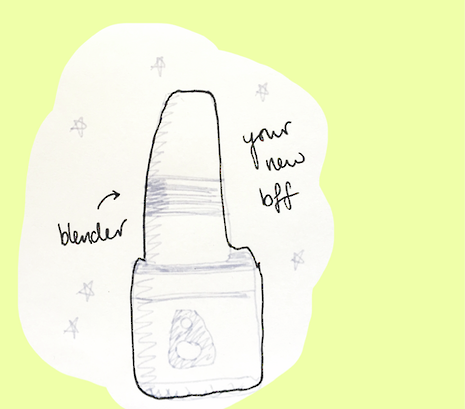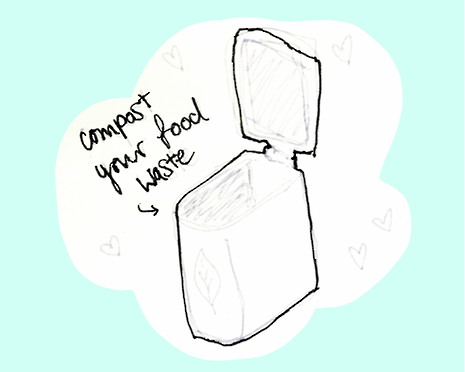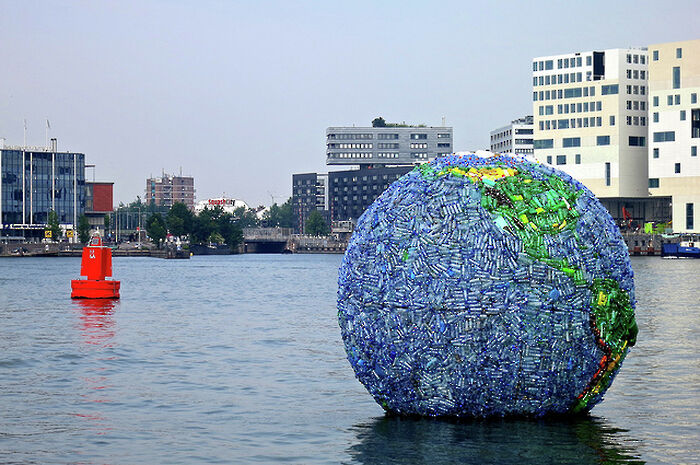Six Rs for a low-waste, low-impact life
Looking to live with less? The co-founder of the Cambridge University Low Waste/Low Impact Facebook group, brings us her top tips for living with less

A third of food produced for human consumption is either discarded, lost or wasted. This year alone, over three million tonnes of plastic has already been dumped into the ocean. All the plastic that has ever been made is still around on the planet.
Yes, all of it. That’s all of the plastic you, your parents, your aunts and uncles, your mate, your mate’s grandparents, your favourite actor, singer, comedian, their mates and their mates’ parents have ever laid their hands on. Still around.
The good news is that you can make a conscious choice to reduce our waste by integrating the following tips into your life! Use the six low impact Rs: refuse, reduce, reuse, repair, recycle and rot. Here are some tips within each category that you can adopt now.
Refuse
Stop eating meat. The animal agriculture industry produces unholy amounts of pollutants, uses gluttonous amounts of natural resources for space, food and water for raising animals and meat products are covered in more plastic packaging than any other food type. It’s a no-brainer.
All the plastic that has ever been made is still around on the planet
Stop accepting single-use plastics. Refuse plastic bags and actually use the canvas bags shoved behind your desk for shopping. Ask for no straw, or bring your own reusable one made from steel, glass or bamboo. Same goes for disposable cutlery and food containers – it’s always unnecessary so bring your own take-out set with a steel container, wooden cutlery and a napkin. Do not buy bottled water – it’s a scam and it’s awful for the environment. Take your own steel reusable bottle on the go. A big no-no is disposable coffee cups: they can’t be recycled as despite their outward cardboard-like appearance, they have a plastic coating on the inside. Get a keep cup, they’re everywhere (and they’re cute).
Don’t buy plastic products when there are alternatives. Plastic toothbrushes go straight to landfill, meaning all the plastic toothbrushes you’ve ever used in your life are still around. Opt for a bamboo toothbrush which can be composted. Same goes for razors: if you’re into hair removal, get a safety razor, it’ll last a lifetime and the razor blades can be recycled.
Reduce
Reduce food waste. Make a meal plan before doing your shopping, so you’re not overbuying. When shopping for fruit and veg, go to the market instead of Sainsbury’s; you can get everything unpackaged and for less money. When in Sainsbury’s, buy reduced food items: they’re close to being thrown out for no reason and they could find a loving home with you. Buy dry food in bulk to reduce packaging. When you’ve cooked too much, freeze it or eat it the next day – don’t throw it away.

Change your habits. A very easy change to reduce waste is switching from tea bags (which are usually coated in plastic) to loose leaf tea, using a steel strainer. Instead of buying bottled hand soap and shower gel, buy a bar of soap. When buying packaged food, opt for those in glass or tin packaging, as they are widely recycled (when rinsed out). Make the effort to shop locally rather than online, as that requires your body power and a canvas bag rather than a truck and loads of packaging. When shopping online, email customer service to request that your orders be put in minimal, cardboard packaging – this has been very successful on Amazon and ASOS for me.
Make it yourself. This might sound too onerous at first, but it’s not in reality: make your own products instead of buying them in plastic! One super easy thing to make is your own milk: all you need is a blender, a muslin cloth and either almonds, oats or cashews (oats are cheapest and best for the environment, but it’s down to personal preference, too). Soak the nuts or oats for a few hours in some water, then put in a blender with extra water and blend until opaque (takes less than ten seconds). Pass the contents of the blender through a muslin cloth into a glass jar, then put in the fridge: you have milk! You’ll be left with a pulp, which I like to make hummus out of: there are plenty of recipes online for using the pulp.
Reuse
Storing food. Reuse glass jars for food storage instead of throwing them away, or buying plastic containers. Opt for storing in a glass container over using cling film, but when unavoidable, use a reusable wax wrap (you can find these on Amazon) to keep your food. Instead of using foil for cooking, use a reusable silicone mat to prevent sticking.

Zero-waste period. If you are someone who has a period, you can do so while producing no waste at all by switching to reusable products. The longest lasting solution is a menstrual cup, which takes a bit of getting used to, but is a dream when you’ve mastered it. If that’s not your thing, there are loads of different kinds of reusable pads and leak-proof period underwear which you just toss in the wash once used.
Repair
Self-explanatory. Don’t buy a new x y z just because it doesn’t work or look as cute as it used to; get it fixed!
Recycle
Do it properly. Check that what you’re mindlessly tossing into the recycling bin can actually be recycled. Mixed materials (e.g. cardboard and plastic) cannot be recycled. Rinse out recyclables otherwise they contaminate other items and then can’t be recycled.
Having a wardrobe refresh? Never throw clothes away! Give them to charity, or sell on the WomCam buy/sell group or apps like eBay and Depop.
Rot
Make composting your thing. Do not throw food away, it cannot biodegrade properly in landfill! Get your college/halls into composting. You can also compost paper, cardboard and wood products.
Challenge yourself to apply some of these tips in the 30 day low waste challenge starting on 1 May. Join Cambridge University Low Impact / Low Waste on Facebook for daily tips during May
 News / Caius mourns its tree-mendous loss23 December 2025
News / Caius mourns its tree-mendous loss23 December 2025 Comment / Yes, I’m brown – but I have more important things to say22 December 2025
Comment / Yes, I’m brown – but I have more important things to say22 December 2025 News / Clare Hall spent over £500k opposing busway 24 December 2025
News / Clare Hall spent over £500k opposing busway 24 December 2025 Interviews / Politics, your own way: Tilly Middlehurst on speaking out21 December 2025
Interviews / Politics, your own way: Tilly Middlehurst on speaking out21 December 2025 News / King appoints Peterhouse chaplain to Westminster Abbey22 December 2025
News / King appoints Peterhouse chaplain to Westminster Abbey22 December 2025









